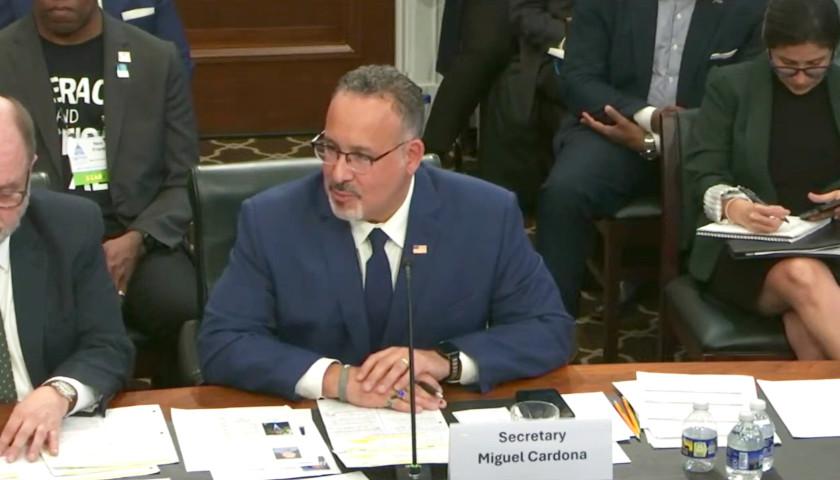by Bruce Walker
Reading scores are down in Michigan among fourth graders from low-income households.
Overall, the scores are 11th-worst in the country. For Black fourth graders in low-income households, it’s even worse: bottom five in the nation.
Those numbers position Michigan fourth graders as a whole well below the national average, a predicament that isn’t anticipated to improve before at least 2030.
The rankings were released Monday in the 2023 State of Michigan Education Report: Beyond the Pandemic. The study was conducted by the Education Trust-Midwest, a nonpartisan policy and education-advocacy group for students of color and low-income students.
The study reports Michigan’s education has been in a downward spiral long before experiencing learning losses from COVID-19 school closures and distance learning.
“For instance, Michigan’s prepandemic performance in early literacy on the National Assessment of Educational Progress has long trailed leading states’ performance,” the study’s authors assert, referencing data culled from what is commonly called the Nation’s Report Card.
Prior to the pandemic, Michigan was one of 18 states nationwide with NAEP scores lower than they were in the early 2000s, the report said.
“On the 2022 test, our students’ average scale score dropped by more than twice as much as the national average. Michigan’s reading scores are now seven points lower than they were nearly 20 years ago,” the report said.
The study also analyzed Michigan’s annual standardized assessment, called the M-STEP, for third-grade reading skills and seventh-grade math proficiency.
“Only 41.6% of all students demonstrated proficiency in 3rd grade reading in 2022 – down from 45.1% proficiency in 2019,” the report said. “The data also signal large and concerning equity issues, as Black students, Latino students, students with disabilities, and students from low-income backgrounds fell at least 12 percentage points below the statewide average in 2022.”
M-STEP testing began in 2015.
“The statewide average proficiency rate for 7th grade math for all students in 2022 is 30.2%,” the authors continued. “Yet again, proficiency rates for Black and Latino student subgroups and the low-income student subgroup were more than 10% below the statewide rate, while white students and higher income students scored at least 6% above the statewide rate.”
ETM, the policy advocacy group, projects the state’s current education trajectory is dire.
The report said, “If Michigan continues down its current path, the state’s current rank of 26th in 4th grade reading for Latino students will fall to 30th in 2030, out of the 47 states reporting results. While Michigan’s 4th grade reading rank in 2030 is projected to increase compared to current ranks for other groups including Black students and students from low-income backgrounds, we still project an overall decline is average score for these students. While subgroup projections for 8th grade math are slightly better, we still predict mixed results regarding improvement in scores by 2030 and any gains predicted are small.”
Education Trust-Midwest recommends 10 steps to stem and reverse learning declines, which it said could potentially catapult the state into the top 10 for education rankings by the end of the decade. Much of the plan would require schools and the state to allocate monies already appropriated from the $3.7 billion Michigan schools received from the federal American Rescue Plan Elementary and Secondary School Education Relief fund, which must be spent by the end of 2024.
As reported late last month by The Center Square, however, many Michigan schools have yet to spend major portions – if any – of their respective ESSER funds.
“As of mid-December 2022, however, districts in Michigan had spent only about 20% of their ARP ESSER dollars,” the ETM report said. “Our report outlines why and how our state and district leaders and policymakers must act quickly and decisively, allocating these investments – especially unspent federal dollars – and leveraging research to ensure that students who fell the furthest behind during the pandemic have the support they need to catch up – and accelerate.”
– – –
Bruce Walker is a regional editor at The Center Square. He previously worked as editor at the Mackinac Center for Public Policy’s MichiganScience magazine and The Heartland Institute’s InfoTech & Telecom News.








